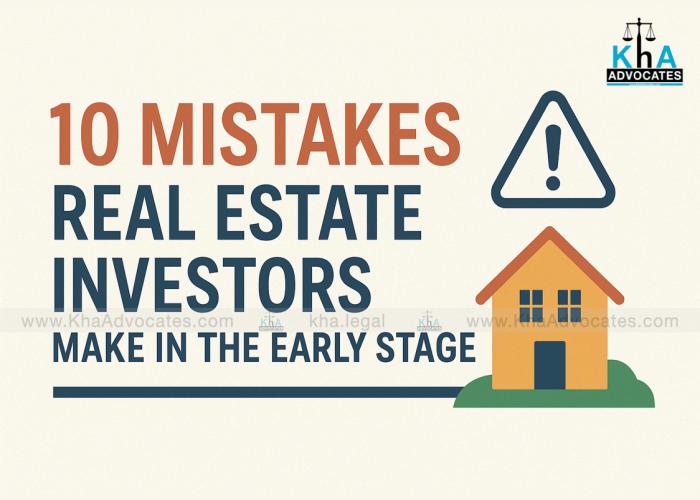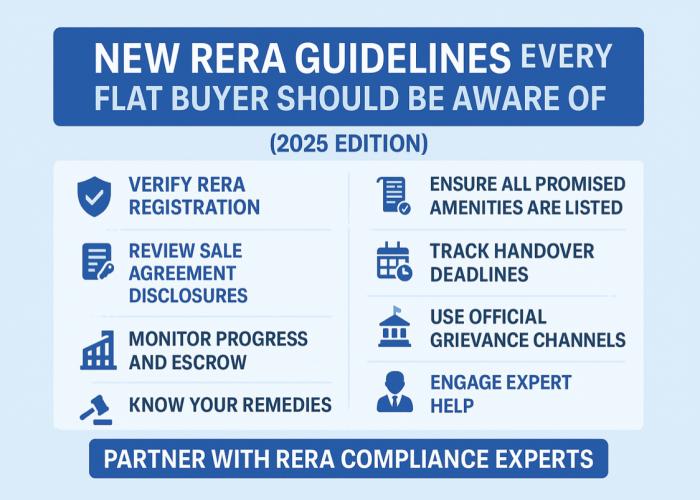
Published on: August 15, 2025
When you’re just starting out in real estate—whether as an investor or an agent guiding investors—it’s easy to get caught up in the excitement of the deal.
Unfortunately, many new investors (and the agents working with them) make avoidable mistakes that can cost time, money, and credibility.
As a new agent with less than three years’ experience, understanding these early-stage pitfalls not only helps you guide your clients better but also positions you as a trusted advisor—not just a deal closer.
Let’s explore the top mistakes real estate investors make in the early stage and how you, as their agent, can prevent them.
Real estate isn’t a quick-win game. It’s a business of patience, research, and compliance. A wrong step at the beginning—like ignoring legal requirements or misjudging market value—can derail an investment before it even starts.
For new agents, spotting these red flags early is a chance to build investor trust and show your professional edge.
The Mistake: Jumping into a deal without verifying property titles, encumbrances, or RERA registration.
Agent’s Role: Always recommend legal verification before signing agreements. Partnering with a legal mentor ensures you never miss hidden issues.
The Mistake: Expecting quick profits without considering market cycles.
Agent’s Role: Educate clients about realistic timelines and the importance of holding power.
The Mistake: Investing in unregistered projects or working with unregistered agents.
Agent’s Role: Ensure every project you recommend is RERA-compliant and verified on the official portal.
The Mistake: Thinking the cheapest property is the best deal.
Agent’s Role: Guide clients to consider location, developer credibility, and legal clearances instead of just price tags.
The Mistake: Buying without a plan—whether for flipping, renting, or long-term holding.
Agent’s Role: Help clients define goals before they invest. This helps in matching them with the right property type.
The Mistake: Over-leveraging loans without accounting for EMI, taxes, and maintenance.
Agent’s Role: Suggest consulting a financial advisor and help them forecast potential costs.
The Mistake: Relying on verbal commitments instead of legally binding contracts.
Agent’s Role: Ensure all agreements are in writing, reviewed by legal experts, and signed by all parties.
The Mistake: Believing glossy brochures without checking facts.
Agent’s Role: Verify claims about amenities, approvals, and delivery dates before sharing them with clients.
The Mistake: Not budgeting for repairs, society fees, or tenant management.
Agent’s Role: Be upfront about these costs—clients appreciate transparency.
The Mistake: Trying to do everything alone—without a good lawyer, accountant, or property manager.
Agent’s Role: Create a trusted network of professionals you can recommend. This not only helps clients but also builds your brand as a resourceful agent.
Investors appreciate agents who provide market insights and legal clarity—not just property options.
Share real-life examples (without naming names) to explain why certain mistakes are costly.
If you’re not a lawyer, collaborate with one. Your ability to connect clients with legal guidance can be your strongest selling point.
Q1: What’s the most common legal mistake new investors make?
A: Not verifying property ownership and approvals before purchase. This can lead to disputes and financial loss.
Q2: Should I avoid under-construction properties as a new investor?
A: Not necessarily. Just ensure the project is RERA-registered and backed by a credible developer.
Q3: How can I check if a project is RERA-compliant?
A: Visit your state’s RERA website, enter the project details, and verify the registration number.
Q4: Is it okay to invest with just verbal promises from the developer?
A: No. Always have written agreements vetted by a legal professional.
Q5: Can new agents really guide investors on legal matters?
A: While agents can’t give legal advice, they can connect clients with qualified legal experts—which boosts credibility.
Mistakes in the early stage of real estate investment can cost lakhs of rupees and years of lost opportunity. As a new agent, your role isn’t just to sell—it’s to protect your clients by guiding them through ethical, legal, and financially sound decisions.
When you understand these common pitfalls and actively help clients avoid them, you’re not just closing deals—you’re building trust, referrals, and a long-term career.
At KHA Advocates, we specialize in real estate legal solutions—from due diligence and RERA compliance to agreement drafting and dispute resolution.
We act as a legal mentor for agents, helping you protect your clients, close deals faster, and grow your reputation in the market.
📞 Call us at 9832555666 or 📧 email contact@khaadvocates.in to explore how we can be your behind-the-scenes legal partner.

